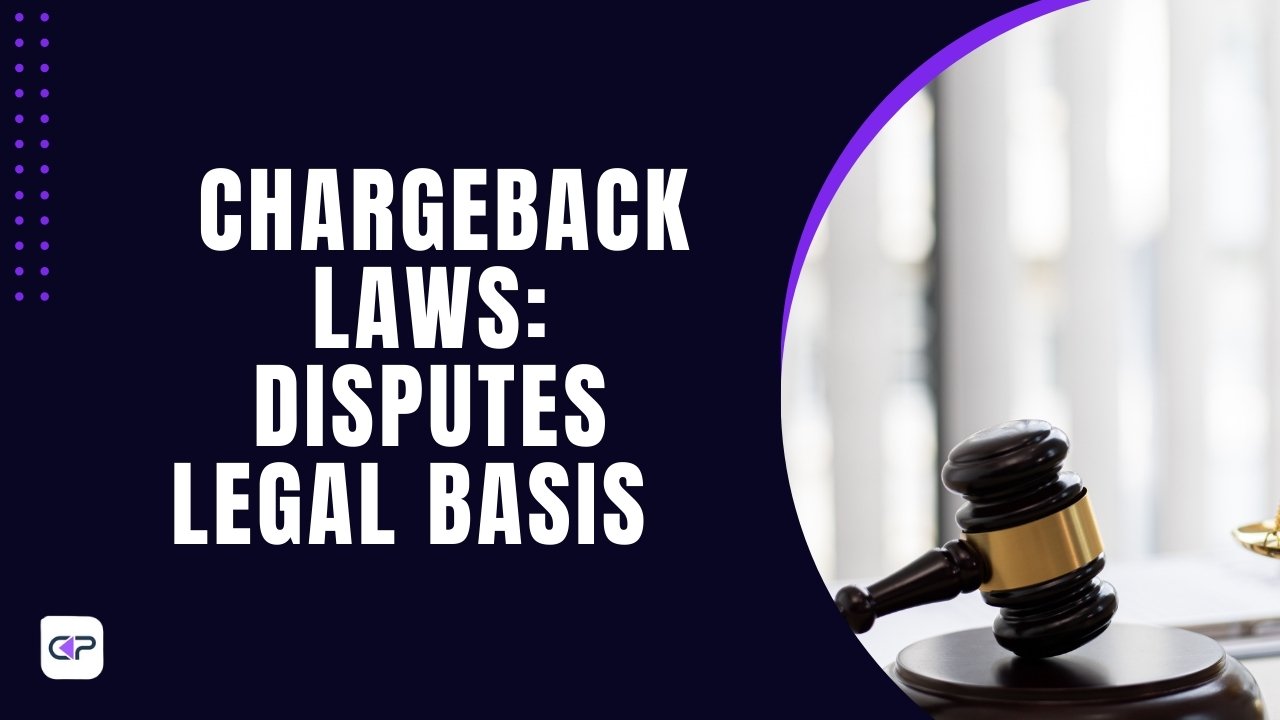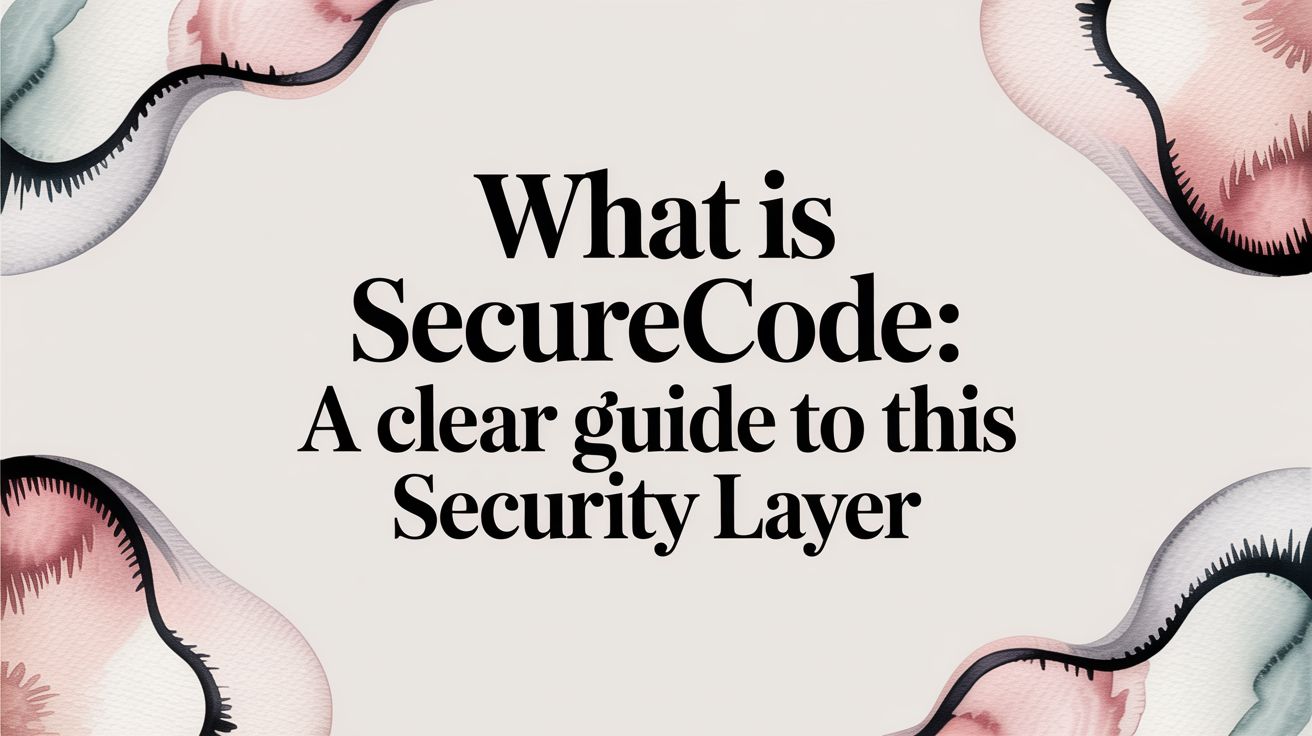
Chargeback disputes, a financial issue for businesses, are governed by various laws that aim to protect consumers from fraudulent or unauthorized transactions.
As the digital payments continues to evolve, comprehending the legal framework around chargebacks is crucial for businesses to effectively manage and prevent disputes.
Today, businesses must understand not only long-standing regulations but also adapt to emerging trends like digital payments and cross-border commerce.
ChargePay's guide breaks down the essential laws and emerging considerations that forms the chargeback regulations today.
Exploring Chargeback Laws and Regulations
Chargeback laws exist to ensure consumer protection while balancing the interests of merchants and financial institutions.
These laws provide the legal foundation that facilitate on when and how chargebacks can occur under legitimate charges.
Understanding these regulations enables businesses to protect themselves, minimize risk, and respond effectively to disputes.
Two Legal Groundwork for Chargebacks
Chargebacks operate within a legal framework that aims to balance the rights of consumers and businesses.
While specific regulations might vary, two key legislations are:
1. Truth in Lending Act (TILA)
The Truth in Lending Act (TILA), established in 1968, provides key consumer protection related to credit transactions. It allows consumers to dispute unauthorized credit card charges and mandates clear disclosure of credit terms.
TILA remains a critical regulation in today’s chargeback processes, ensuring consumers have the right to contest transactions within specific timeframes.
2. Regulation E
Regulation E, under the Electronic Fund Transfer Act (EFTA), governs electronic payments, including debit card transactions and ACH transfers.
It provides consumers with the ability to dispute unauthorized or erroneous charges and receive refunds.
Regulation E applies broadly across the digital payment landscape, ensuring that consumers are protected in cases of fraud or error, even as payment methods evolve.
3 Historical Perspective: Evolution of Chargeback Laws
Understanding the historical development of chargeback laws is vital for businesses to navigate the laws of credit card transactions.
These laws have undergone substantial transformations over time, shaping the management of disputes and fraudulent today.

This evolution holds direct implications for your business operations and customer relationships.
1. Early Consumer Protection Measures
The foundation of chargeback laws began with consumer protection legislation in the mid-20th century. Laws like TILA were designed to address issues with credit card misuse and ensure consumers had clear rights and responsibilities.
2. Precedents and Landmark Cases
Several pivotal legal cases played a pivotal role in shaping the present-day chargeback regulations. These cases established crucial precedents that continue to influence dispute-resolution practices.
Think of these cases as the cornerstone that gradually built the foundation of chargeback laws. As a business owner, acquainting yourself with these cases offers insights into your rights and responsibilities when dealing with customer disputes.
These legal battles clarified concepts such as "goods not received" or "unauthorized transactions," providing a clearer understanding of scenarios that might trigger chargebacks. This clarity empowers you to proactively avert such situations and nurture healthier customer relationships.
3. Relevance for Business Owners
For modern business owners, understanding the evolution of chargeback laws provides insight into why current regulations exist and how to effectively navigate the legal environment.
Being aware of legal precedents can help businesses build stronger defenses against fraudulent claims.
3 Modern Chargeback Regulations: A Comprehensive Overview
Chargebacks is a crucial aspect in the modern payments, allowing you to manage disputes that arise from unauthorized or fraudulent charges.
While chargebacks provide consumers with a level of protection, it's important to recognize that they can also impact your bottom line, leading to refunds even when you've done nothing wrong.
To level the playing field and protect your business from unjust chargebacks, modern regulations have been established.
These rules may differ from one country to another, but they generally encompass the following aspects:
- Time Limits for Chargeback Requests: Consumers are typically allowed to initiate chargebacks within a specific time window after the purchase is made. This timeframe helps prevent individuals from abusing the system by raising false claims long after the transaction occurred.
- Evidence Requirements: When filing a chargeback, consumers are required to provide supporting evidence to substantiate their claim. This evidence might include documents like shipping confirmations, receipts, or even photographs of damaged items. This requirement ensures that chargeback requests are based on legitimate reasons.
- Merchant Due Process: As a business owner, you have the right to a fair process when a chargeback is initiated. This means you can present evidence to counter the chargeback claim. Moreover, you have the option to appeal the decision if you believe it's unfair or inaccurate.
Modern chargeback regulations are designed to strike a balance between safeguarding consumers and preventing fraudulent activities. By becoming well-versed in these regulations, you can significantly decrease the likelihood of facing unjust chargebacks.
Let's delve into a more comprehensive overview of some of the key modern chargeback regulations:
1. The Fair Credit Billing Act (FCBA)
The FCBA, an amendment to TILA, enhances consumer rights by providing specific guidelines on how to resolve billing errors on credit card statements.
Businesses must be aware of these guidelines to ensure compliance and maintain a robust response process for chargeback disputes.
2. The Electronic Funds Transfer Act (EFTA)
The EFTA, implemented via Regulation E, safeguards consumers against fraudulent electronic payments.
It mandates prompt reporting and investigation of unauthorized transactions, emphasizing the importance of secure payment systems for businesses that handle electronic payments.
3. The Payment Card Industry Data Security Standard (PCI DSS)
Its set of security standards mandates that merchants adhere to specific guidelines to safeguard cardholder data. By being compliant with PCI DSS, you can substantially mitigate the risk of fraud and consequent chargebacks.
While not a law, the PCI DSS is a crucial security standard that governs how businesses should handle and protect cardholder data.
Compliance with PCI DSS is essential for minimizing the risk of fraud and avoiding costly chargeback disputes.
4 Emerging Trends and Future Considerations
In the world of chargeback regulations, there are important trends on the horizon that business owners like you should be aware of.
These trends can impact how you handle chargebacks and safeguard your business:
1. Digital Payment Surge
As digital payment options continue to grow, so do the challenges associated with fraud prevention and dispute resolution.
Businesses need to stay ahead of these trends by adopting advanced technologies like AI to detect fraudulent activity in real-time.
2. Cross-Border Commerce Growth
The increase in cross-border transactions introduces complexities in chargeback management, as different countries have varying regulations.
Businesses engaged in international commerce must stay informed about global payment regulations to effectively manage chargebacks.
3. Artificial Intelligence (AI) Implementation
AI is increasingly being used to detect and prevent fraudulent transactions.
Its ability to analyze vast amounts of data and identify suspicious patterns is proving essential in modern chargeback management, helping businesses prevent disputes before they occur.
Being open to adopting AI-powered solutions might be a smart move to enhance your chargeback handling efficiency.
4. Demand for Transparency
Transparency is becoming a big deal in the chargeback world. You, as a merchant, should be able to easily grasp why chargebacks are hitting your business and how you can prevent them.
Consumers are more informed, and they expect clear communication about why chargebacks are initiated. Providing transparency can help you avoid disputes and maintain trust with your customers.
Win Disputes and Chargebacks With ChargePay
Winning chargeback disputes requires a solid understanding of evolving chargeback laws with a robust strategy for compliance and management.
With regulations like the Truth in Lending Act (TILA) and the Fair Credit Billing Act (FCBA) shaping the chargeback process, businesses need a solution that ensures they stay compliant while effectively managing disputes.
ChargePay offers just that—an AI-powered platform that automates dispute management, aligns with regulatory requirements, and enhances fraud detection.
By managing chargebacks after they escalate and streamlining the response process with AI represetments, ChargePay helps businesses adhere to legal standards and protect their revenue.
Book a demo today to see how ChargePay can safeguard your business!







.svg)







.svg)
.svg)
.svg)